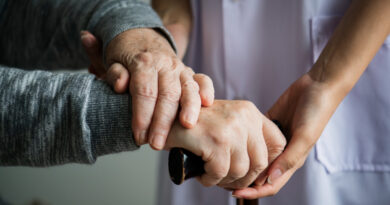Dialysis nurse competency checklist
When you are new to nursing, it is always difficult to juggle the terms used by those who have been around for a while. For example, competency, what’s the list of competencies?
Don’t worry, if you want I’ll explain it to you so you don’t die trying.
In this article in a practical and simple way will explain what are the competencies and the competency list.
I have nothing left to do but to wish you a good reading and good luck for everything!
What are the competencies of a dialysis nurse?
First of all, competency needs to be defined – in simple terms – it is the ability to perform well in complex and authentic contexts. And it is divided into several multidimensional levels:
- Knowing how to do
- Knowing how to be
Thus, competencies are of great importance for the optimal performance of nursing personnel. Since it is related to work, education and training.
Know-how
Know-how is related to practical competencies. These have as their main point the reflection on the action of caring – that is, it grants dialysis nurses the necessary clinical skills that allow them to provide safe and competent care. In other words, it corresponds to a sense of responsibility.
This being so, what qualities must the nurse have in order to know how to do?
- Be able to apply his or her knowledge in dialysis nursing
- To have the ability and skill to provide problem solving
- Resolve any doubt derived from the nursing practice.
Knowing how to be
Knowing how to be is the essential basis for the training of dialysis nurses. This is because the competencies are associated with care, with clinical and humanistic reasoning. In other words, it is the part that relates to emotions.
Since it aims to provide quality care and safety to dialysis patients. At the same time, in the middle of the interaction, customs, beliefs, values and attitudes will be shown.
But what qualities should the nurse have to know how to be?
- Respect
- Empathy
- To have emotional capabilities
Knowing How to Be
Effective dialysis nursing care requires not only good communication, but also attentive and silent listening. The practice of this “art” requires both empathic communication and knowing how to be when caring for the dialysis patient.
By practicing this, a more active, collaborative and self-responsible attitude will be seen on the part of the patient in the process of their treatment.
So, what qualities should the nurse have to know how to be?
- Empathy
- Introspection
- Communication skills
- Benevolence
This is amazing! By involving all three wisdoms you will see the benefits of both the patient and the nursing staff.
What is the purpose of the competency checklist?
The checklist shows the skills within the nursing specialty, which in this case is dialysis.
Performing this check allows to know the effectiveness of the training. Since, it looks at the method. In this aspect, it also allows to emphasize the development of the nurse and to create a training system that allows her to improve.
What is the scale of competencies?
Example 1:
- No experience
- Needs training
- Able to perform with supervision
- Able to perform independently.
Example 2:
- Inexperienced
- Limited experience
- Experienced
- Very experienced
Guide for the elaboration of a competency checklist
In order to do it in an organized way, it is recommended to make a division with these two elements:
- Questions
- Competency scale from 1 to 4
Example:
| Working Configuration | 1 | 2 | 3 | 4 | |
| Acute/Inpatient Dialysis | |||||
| Chronic/Outpatient dialysis
|
|||||
|
Home dialysis care |
|||||
| Pediatric Dialysis | |||||
| Apheresis | |||||
| Plasmapheresis | |||||
| Pediatric dialysys nursing evaluation | |||||
| Loading experience | |||||
| Set up/start dialysis treatment | 1 | 2 | 3 | 4 |
| Bicarbonate dialysate | ||||
| Conductivity test | ||||
| Dialyzer priming | ||||
| Machine configuration and alarm |
|
|
|
|
| Machine settings and alarm | ||||
| Vascular access preparation | ||||
| Fistula/vein grafting | ||||
| Blood sample collection | ||||
| Anticoagulacion
|
|
|
|
|
| Patient care | 1 | 2 | 3 | 4 |
| Patient Systems Assessment | ||||
| Volume status | ||||
| Vascular access function | ||||
| Arterial and venous pressures | ||||
| Blood flow rate | ||||
| Subjective response to treatment | ||||
| Anticoagulation management | ||||
| Conductivity | ||||
| Ultrafiltration calculation | ||||
| Blood/product administration | ||||
| Mannitol administration | ||||
| Sequental ultrafiltration | ||||
| Documentation of dialysis treatment |
| Patient managament | 1 | 2 | 3 | 4 |
| Air embolous | ||||
| Anemia | ||||
| Blood leakage | ||||
| Cardiopulmonary arrest | ||||
| Chest pain | ||||
| Inbalance syndrome | ||||
| Fluid overload | ||||
| Hemolysis | ||||
| Hypokalemia | ||||
| Hypertension | ||||
| Hypotension | ||||
| Muscle cramps | ||||
| Neuropathy | ||||
| Pericarditis | ||||
| Pyogenic reaction |
In these four examples you can see in detail the Being, Doing and Being competencies of a dialysis nurse.
Conclusion
The checklist of dialysis nurses’ skills is of utmost importance, because it can provide in an objective way: learning opportunities and performance improvement both individually and as a team.
And by making this list, undoubtedly, a self-evaluation and reflection can be made for the improvement of the work as a nurse, because despite the difficulties and pressure, it will always be appropriate to be aware of the level that one is having at the time of caring for the patient.




